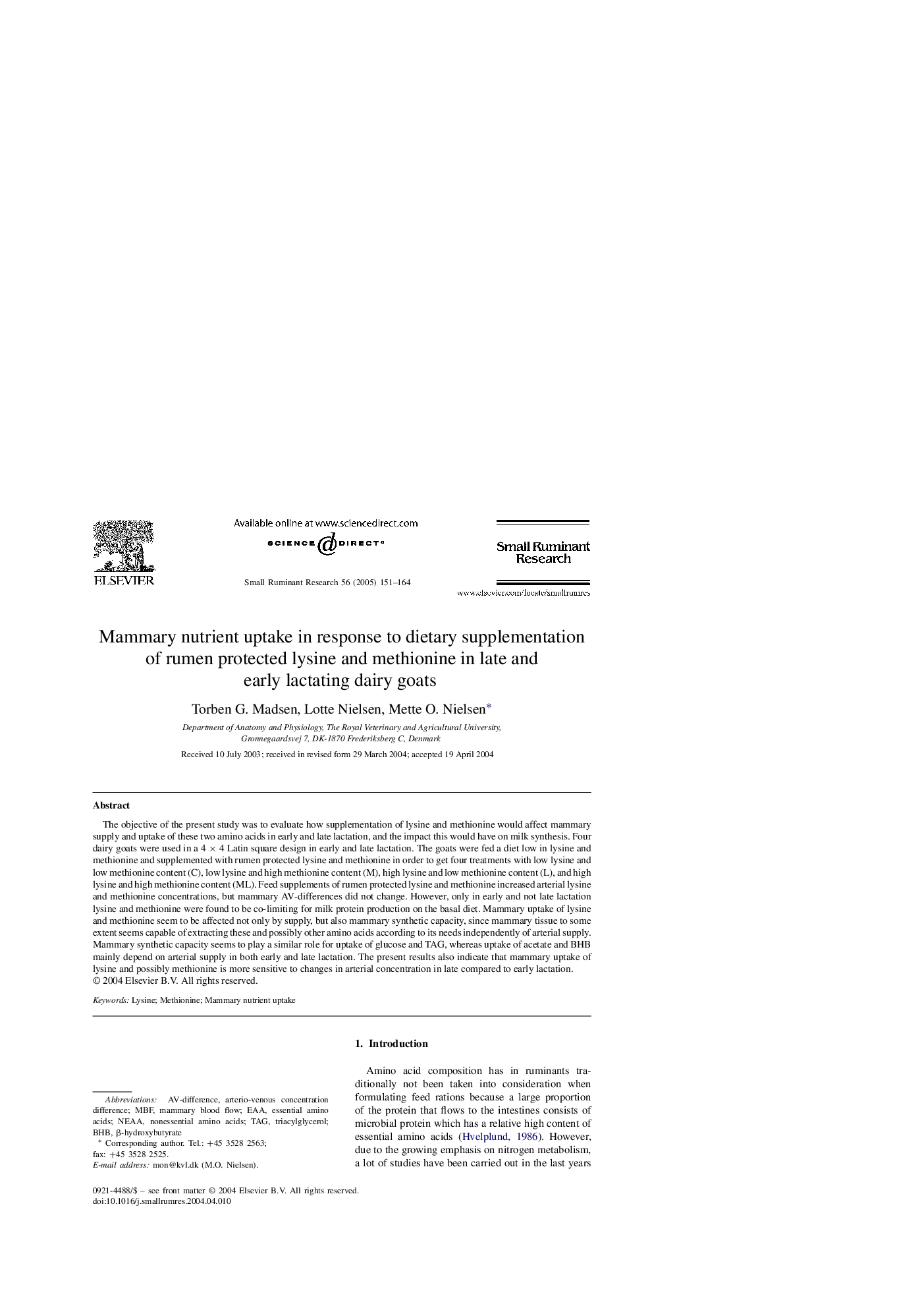| Article ID | Journal | Published Year | Pages | File Type |
|---|---|---|---|---|
| 8986823 | Small Ruminant Research | 2005 | 14 Pages |
Abstract
The objective of the present study was to evaluate how supplementation of lysine and methionine would affect mammary supply and uptake of these two amino acids in early and late lactation, and the impact this would have on milk synthesis. Four dairy goats were used in a 4 Ã 4 Latin square design in early and late lactation. The goats were fed a diet low in lysine and methionine and supplemented with rumen protected lysine and methionine in order to get four treatments with low lysine and low methionine content (C), low lysine and high methionine content (M), high lysine and low methionine content (L), and high lysine and high methionine content (ML). Feed supplements of rumen protected lysine and methionine increased arterial lysine and methionine concentrations, but mammary AV-differences did not change. However, only in early and not late lactation lysine and methionine were found to be co-limiting for milk protein production on the basal diet. Mammary uptake of lysine and methionine seem to be affected not only by supply, but also mammary synthetic capacity, since mammary tissue to some extent seems capable of extracting these and possibly other amino acids according to its needs independently of arterial supply. Mammary synthetic capacity seems to play a similar role for uptake of glucose and TAG, whereas uptake of acetate and BHB mainly depend on arterial supply in both early and late lactation. The present results also indicate that mammary uptake of lysine and possibly methionine is more sensitive to changes in arterial concentration in late compared to early lactation.
Keywords
Related Topics
Life Sciences
Agricultural and Biological Sciences
Animal Science and Zoology
Authors
Torben G. Madsen, Lotte Nielsen, Mette O. Nielsen,
